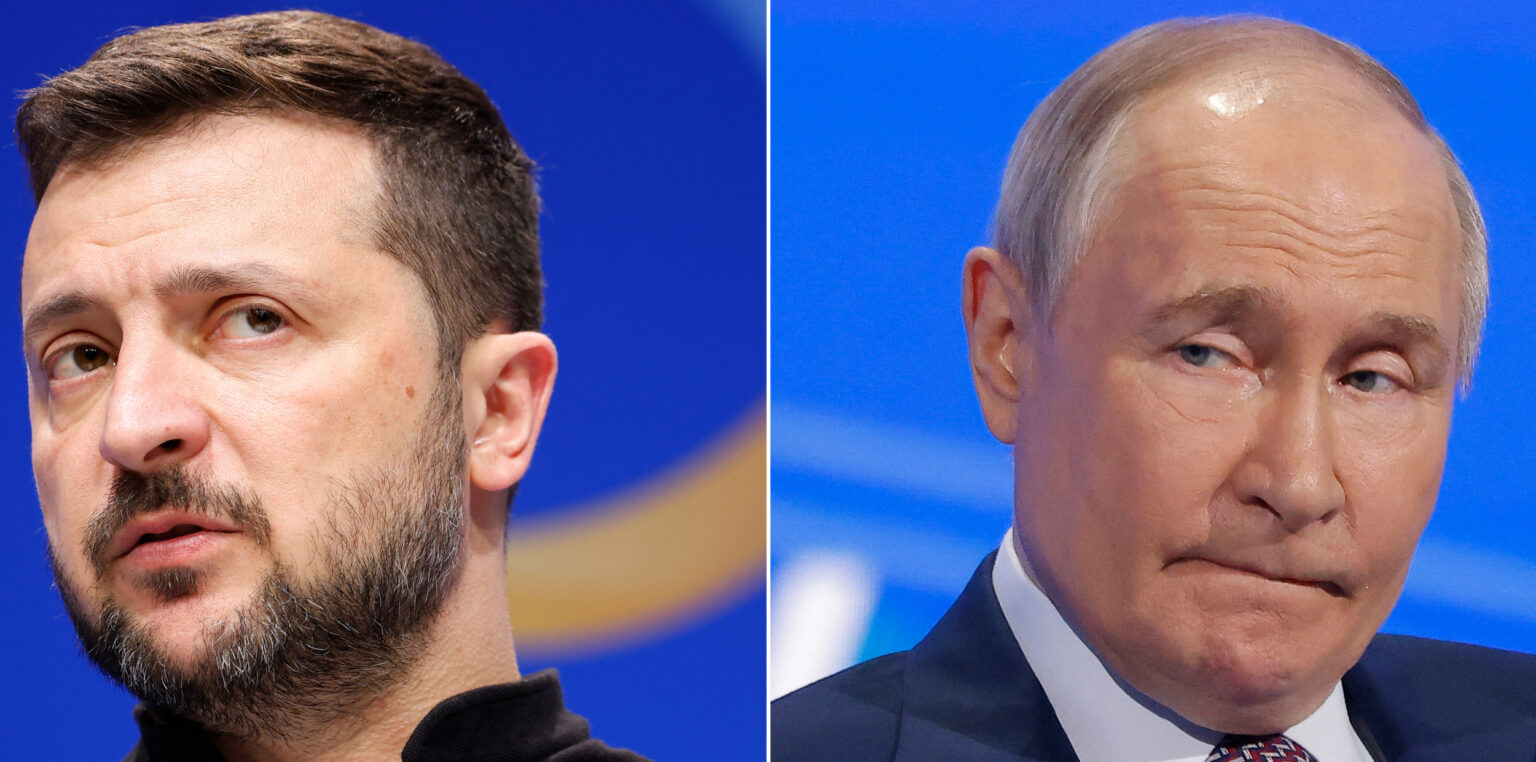The Kremlin was silent Tuesday morning as Ukraine’s ultimatum for a full and unconditional ceasefire passed its deadline.
On May 10, Ukraine and its European allies called on Russian President Vladimir Putin to agree to a 30-day ceasefire by Monday or face a new wave of sanctions.
Newsweek has contacted Russia’s Foreign Ministry for comment by email.
Why It Matters
The U.S. and Ukraine have for weeks been attempting to broker peace talks with Russia to end the war, which is now in its fourth year. All efforts have hit roadblocks as Ukraine and Russia struggle to reach mutually acceptable terms.
Washington has warned it will abandon diplomatic efforts to end the conflict if an agreement isn’t reached soon.
What To Know
“A full and unconditional ceasefire must begin on Monday, May 12, for at least 30 days,” the office of Ukraine’s President Volodymyr Zelensky said on May 10.
“A full and unconditional ceasefire is urgently needed. Accountability for any refusal is essential. Under such a ceasefire, we will be able to jointly agree on the foundations for peace,” the Ukrainian president said.
The leader’s office added that an unconditional ceasefire means that no conditions are attached, and any attempt to impose conditions indicates an intention to prolong the war and undermine diplomacy.
Zelensky previously refused to cede territory to Russia to bring an end to the war, while Moscow has demanded Ukraine give up its aspirations to join NATO, and recognize Crimea and the Ukrainian regions of Donetsk, Luhansk, Zaporizhzhia and Kherson, as Russian.
Germany warned Russia that it had until the end of Monday to agree to the ceasefire.
Europe is preparing to impose fresh sanctions on Russia’s energy sector and banking system for rejecting the ceasefire, officials said.
“Preparations for those sanctions are already underway and being coordinated between the Americans and the Europeans,” French President Emmanuel Macron said.
Putin has also yet to respond to an invitation by Zelensky to attend peace talks in Turkey on Thursday.
The Institute for the Study of War (ISW), a U.S.-based think tank, said Russian officials appear to be setting conditions for Putin to reject Zelensky’s invitation to meet in Istanbul for potential bilateral ceasefire talks.
“Putin has engaged in significant rhetorical efforts to prepare the Russian public for a long-term war effort—and not a near-term peace agreement—including by promoting the false narrative that Zelensky and the Ukrainian government are illegitimate,” the ISW said in its latest analysis of the conflict.
What People Are Saying
Ukrainian President Volodymyr Zelensky said in a video address to the nation on Monday night: “Unfortunately, the world still has not received a clear response from Russia to the numerous proposals for a ceasefire.
“Russian shelling and assaults continue. Moscow has remained silent all day regarding the proposal for a direct meeting. A very strange silence. One way or another, Russia will have to end this war—and the sooner, the better. There is no sense in continuing the killing.”
President Donald Trump‘s special envoy, Steve Witkoff, told Breitbart News of a potential summit between Zelensky and Putin in Istanbul this week: “I think it’s entirely possible. I think if the U.S. pulls back from this conflict, in other words doesn’t want to be involved with it and says it’s not my war and I’ve tried to do my best, I think that’s a bad result for everybody. It’s bad for the Europeans, it’s bad for the Ukrainians, and I don’t think it’s good for the Russians.
“I think the Russians actually do want a peaceful settlement, and both sides are trying to figure out what that means for them. Our job is to put them in a room together and show them that the alternatives to a peaceful resolution here are bad for everybody. That’s our job.”
Political scientist John Mearsheimer, who published commentary in 1993 titled “The Case for a Ukrainian Nuclear Deterrent,” previously told Newsweek he believes it is unlikely that Ukraine will be able to retrieve the territory Russia has occupied in the conflict.
“With regard to losing territory, the only interesting question at this point in time is how much territory Ukraine is going to lose because there’s no way Ukraine can take back the territory that it’s lost,” said Mearsheimer, the R. Wendell Harrison Distinguished Service Professor in the Political Science Department at the University of Chicago.
“Indeed, Ukraine, even with full backing from the United States and its European allies, cannot take back the territory it’s lost. This is a disastrous situation for Ukraine.”
What Happens Next
An EU official told the Kyiv Independent that the bloc intends to impose fresh sanctions against Russia on Wednesday.
Read the full article here

